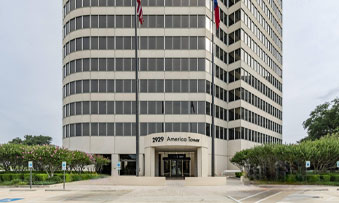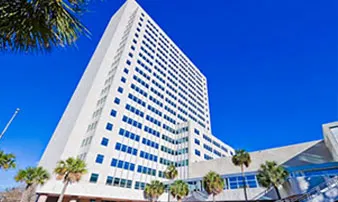Atlanta Amputation Lawyer
The loss of a limb is a profoundly life-altering event. Whether occurring suddenly in a traumatic accident or necessitated by medical complications arising from an injury, an amputation leaves victims facing a future irrevocably changed. In the state of Georgia, accidents resulting in amputation are devastatingly common, often stemming from preventable negligence. Georgia provides victims an avenue to pursue compensation when injured due to someone else’s negligence, however, pursuing a personal injury claim involving amputation is complex, requiring a deep understanding of specific state laws, intricate damage calculations, and the tactics insurance companies use to minimize payouts.
The Atlanta amputation lawyer team at Merritt & Merritt Law Firm understand the immense challenges faced by amputation survivors and their families. We are dedicated to providing compassionate support and tenacious legal representation to ensure victims in Georgia receive the full compensation necessary to rebuild their lives and secure their future.
Don’t face this alone. Call our Atlanta amputation lawyer team at Merritt & Merritt Law Firm today at 404-975-1775.
Common Accidents Leading to Amputation in Georgia
Several types of accidents frequently result in catastrophic injuries that lead to the amputation of a limb. Our Atlanta amputation lawyer team understands these common scenarios and can help you determine liability.
- Motor Vehicle Collisions: Crashes involving cars, trucks, and especially motorcycles are a primary cause of traumatic amputations. The immense forces involved can cause crushing injuries or direct limb severance. Occupants can be pinned within wreckage, leading to irreparable damage.
- Workplace Accidents: The workplace, particularly in industries like manufacturing, construction, and transportation, presents numerous amputation hazards. Unguarded machinery is a common factor in workplace amputations, often stemming from employer safety failures.
- Defective Products: Products that are defectively designed, manufactured, or lack adequate warnings can cause severe injuries leading to amputation. This can include faulty industrial machinery, unsafe consumer appliances (like lawnmowers), defective vehicle components that contribute to a crash, or even flawed medical devices.
- Other Causes: Severe burns (from fires, explosions, or electrocution), serious dog bites leading to infection or irreparable tissue damage, and even some instances of medical malpractice (such as surgical errors or failure to diagnose conditions like infections or vascular disease leading to tissue death) can result in the need for amputation. Premises liability incidents, where hazardous conditions on property cause severe falls or other accidents, can also lead to amputation injuries.
Why These Accidents Happen: Negligence is Often the Cause
In the eyes of Georgia law, most accidents that lead to amputation are not mere “accidents” but the result of negligence. To successfully pursue a personal injury claim based on negligence in Georgia, four key elements must generally be proven:
- Duty: The person or entity responsible (the defendant) owed a legal duty of care to the injured person (the plaintiff).
- Breach: The defendant breached that duty through a careless act or omission.
- Causation: The defendant’s breach of duty directly caused the plaintiff’s injuries.
- Damages: The plaintiff suffered actual harm, such as physical injury, medical expenses, lost income, and pain and suffering.
Georgia Laws Protecting Amputation Victims
Navigating a personal injury claim after an amputation requires understanding of key Georgia laws that govern liability, deadlines, and compensation. The strict adherence to these laws underscore why experienced legal guidance from the Atlanta amputation lawyer is essential.
- Statute of Limitations (Deadline to File): This is perhaps the most critical law when filing a claim for compensation. In Georgia, personal injury lawsuits, including those for amputation injuries, must generally be filed within two years from the date the injury occurred. If you miss this deadline, your right to seek compensation through the courts is permanently lost, regardless of the severity of your injury or even if the defendant is clearly at fault.
- Modified Comparative Negligence (Sharing Fault): Georgia follows a “modified comparative negligence” rule which means that if you are found partially responsible for the accident that caused your amputation, your ability to recover compensation can be affected.
- You can still recover damages if your percentage of fault is determined to be less than 50%.
- However, your total compensation award will be reduced proportionally to your degree of fault. For example, if you are found 20% at fault, your $1 million award would be reduced by 20% ($200,000), resulting in an $800,000 recovery.
- Crucially, if you are found to be 50% or more at fault, you are barred from recovering any compensation whatsoever from the other party. Insurance adjusters are aware of this rule and may try to get you to say things that imply fault on your part.
The combination of the strict two-year deadline and the unforgiving 50% fault bar creates significant pitfalls for amputation victims trying to navigate the legal system alone. Delaying action or making statements that could be construed as admitting fault can have devastating consequences, potentially eliminating a valid claim entirely. Having an experienced attorney from the Atlanta amputation lawyers at Merritt & Merritt Law Firm can ensure that you not only adhere to the legal deadlines and rules, but your chances of getting the maximum amount of compensation is higher.
Damages the Atlanta Amputation Lawyers Can Get For You
An amputation inflicts staggering costs—physical, emotional, and financial—that extend over a lifetime. Georgia law allows victims of negligence to seek compensation, known as damages, to cover these extensive losses. Understanding the full range of recoverable damages is crucial for ensuring a fair outcome, and they are broadly categorized as compensatory (to make the victim whole) and, in some cases, punitive (to punish the wrongdoer).
Compensatory damages are further divided into special damages and non-economic damages.
Special (Economic) Damages
These cover tangible, measurable financial losses directly resulting from the injury. For amputation victims, these are substantial and lifelong:
- Medical Expenses (Past and Future): This includes all related medical costs: emergency transport and care, hospital stays, surgeries (initial and potential future revisions or complications), doctor appointments, prescription medications (pain management, infection prevention), physical therapy, occupational therapy, and rehabilitation services.
- Prosthetic Costs (Lifetime): This is a major, recurring expense. It covers the cost of the initial prosthetic limb(s), professional fitting, necessary adjustments, ongoing maintenance, and—critically—lifetime replacements. Prosthetics typically need replacement every 3-5 years. Depending on the type and complexity (from basic models to advanced computerized limbs), a single prosthetic can cost anywhere from $5,000 to over $70,000. Conservative estimates place the lifetime healthcare costs, including prosthetics, for an amputation victim at well over $500,000, with many analyses suggesting costs can easily exceed $1 million, especially when considering advancements and potential complications.
- Lost Wages: Compensation for the income lost during the period of recovery and rehabilitation when the victim cannot work.
- Loss of Earning Capacity: Perhaps even more significant, this compensates for the diminished ability to earn income over the victim’s lifetime due to the permanent disability caused by the amputation. The injury may prevent returning to a previous career or limit future job opportunities and earning potential.
- Home and Vehicle Modifications: Costs associated with adapting living spaces and transportation for accessibility, such as installing ramps, widening doorways, modifying bathrooms, or adding hand controls to vehicles.
- Other Expenses: Costs for wheelchairs, walkers, specialized equipment, in-home care, or other necessary assistive services.
General (Non-Economic) Damages
These compensate for the intangible, yet profound, human costs of the amputation. While harder to assign a dollar value, they are often the most significant aspect of the victim’s suffering:
- Pain and Suffering: Compensation for the physical pain endured, both acute and chronic, including the often-debilitating phantom limb pain experienced by many amputees, as well as the mental and emotional anguish.
- Emotional Distress: Covers the significant psychological impact, including diagnosed conditions like depression (affecting 30% or more of amputees), anxiety disorders, and Post-Traumatic Stress Disorder (PTSD), particularly after traumatic amputations.
- Loss of Enjoyment of Life: Compensation for the inability to participate in hobbies, sports, social activities, family events, and the simple pleasures of daily life that were possible before the amputation.
- Disfigurement and Scarring: Acknowledges the permanent physical alteration resulting from the amputation.
Fighting for compensation can be a tedious task, and one that you should not have to fight alone while recovering from your accident. Let the Atlanta amputation lawyers take on your case and get you the amount of damages you need so you can focus on the important things- recovering.
Why Expert Legal Help from the Atlanta Amputation Lawyer is Crucial
The moments following an amputation are just the beginning of a lifelong journey of adaptation and challenge. The physical recovery involves extensive healing, rehabilitation, and learning to function with a prosthetic limb, often accompanied by chronic pain or phantom limb sensations. Mobility is often permanently altered, requiring adjustments to daily tasks, home environments, and transportation.
Equally significant are the emotional and psychological hurdles. Grief, depression, anxiety, PTSD, and struggles with body image and self-esteem are common and understandable responses to such a traumatic loss. These psychological impacts can affect personal relationships, social interactions, and overall quality of life.
Overlaying these physical and emotional challenges is the immense financial burden. As detailed, the lifetime costs for medical care, prosthetic devices (which need regular replacement), therapy, and necessary modifications can easily run into hundreds of thousands, if not millions, of dollars. Compounding this is the potential for significantly reduced earning capacity, creating long-term financial instability.
Navigating a legal claim amidst these overwhelming challenges is daunting. Proving negligence, establishing the causal link between the accident and the amputation, accurately calculating the full scope of lifetime damages, and countering insurance company tactics designed to minimize payouts requires specialized legal knowledge and experience. Georgia’s specific laws, particularly the strict statute of limitations and the comparative negligence rule, add layers of complexity that can easily jeopardize a claim if not handled correctly.
This is why having legal representation capable of understanding these interconnected needs and fighting for comprehensive compensation is imperative.
Why Choose the Atlanta Amputation Lawyer for Your Amputation Injury Claim?
If you or a loved one has suffered an amputation injury in Georgia due to someone else’s negligence, do not wait to seek legal help. Contact our Atlanta amputation lawyer team today for a free, no-obligation consultation. Let our experienced and compassionate attorneys review the details of your case, explain your legal options, and answer your questions. Call Merritt & Merritt Law Firm now at 404-975-1775. We are ready to fight for the justice and the financial security you need to move forward after a life-altering amputation injury.






